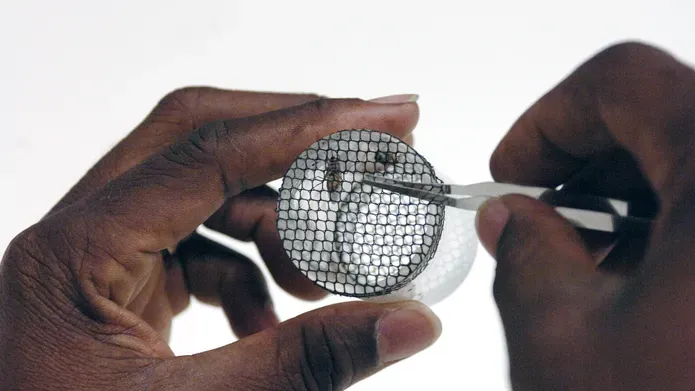Case study
Neglected tropical diseases
Bringing about step-change in the diagnosis and treatment of neglected tropical diseases.
Published on 12 May 2022

Image of adult Tsetse fly by Dean Calma, IAEA Imagebank licensed under CC BY-SA2.0
According to the World Health Organization, more than 1 billion people are affected by neglected tropical diseases caused by viruses, bacteria and parasites.
The work of Dundee’s Drug Discovery Unit (DDU) is bringing about step-changes in the treatment of these diseases. By partnering with global pharma companies and non-profits such as Foundation for Innovative New Diagnostics (FIND), Drugs for Neglected Diseases (DNDi), and Medicines for Malaria Venture (MMV), Dundee’s research has pioneered new approaches, resulting in the development of new treatments and diagnostic tools that are already benefitting thousands of people.
Development of new Rapid Diagnostic Test for Human African Trypanosomiasis (HAT)
Human African Trypanosomiasis (HAT), or sleeping sickness, is transmitted through the bite of infected tsetse flies. It is endemic in 36 sub-Saharan African countries, putting 57 million people at risk and is generally fatal if untreated. Although strict controls have reduced its prevalence in recent years, active surveillance is critical to identify and curtail any re-emergence through community transmission.
A Rapid Diagnostic Test based on Dundee researcher’s discoveries and prototype testing has been adopted by FIND as the preferred HAT diagnostic test. An earlier test for HAT diagnosis required a refrigerated ‘cold chain’, trained personnel and electrical equipment, complicating its use in population screening in remote settings.
The prototype test developed in Dundee marked a valuable departure from previous methods. Rather than using native antigens, they used dual recombinant antigens – this removed the need for live parasites from specialist labs, reducing risk in the production process and improving efficiency by avoiding variations in batch quality.
The resulting BIOLINE HAT 2.0 test is cheap, can be stored at room temperature, is easy to use in remote settings and can give results in 15 minutes – all important factors for deployment of screening programmes in sub-Saharan Africa. A multi-centre clinical study on almost 57,000 people had benefit to those diagnosed and treated and showed that the Dundee-developed test is more sensitive than previous generations of test. This led to its formal adoption as FIND’s preferred HAT screening test and subsequent production by Abbott.
Leishmaniasis
Alongside development of diagnostic tools, Dundee research expertise is being applied to the development of new drug treatments.
Visceral Leishmaniasis (VL) affects the very poorest people. Caused by the bite of an infected sandfly, it is often associated with malnutrition, weak immune systems, poor housing and lack of resources. Up to 1 million new cases occur annually and, if left untreated, it is fatal in over 95% of cases.
Dundee’s researchers worked in collaboration with GlaxoSmithKline and DNDi on potential drug treatments. Their major research programme included the development of novel assay platforms that have revolutionised drug discovery and facilitated development of two new compounds with potential to treat VL. Importantly, the new compounds have novel modes of action, reducing the risk of resistance and enabling combination therapies. The drugs have entered clinical trials in humans. Dundee research is also cited in patents on potential treatment of leishmaniasis in dogs, which act as a reservoir for human infection.
The novel assay platforms are now widely used by industry, improving the efficiency of drug screening to a through-put unattainable previously. In total, DNDi and GSK have screened >500,000 and 1.8 million compounds respectively using DDU assays.
Malaria
Malaria kills 400,000 people every year, mostly young children. Resistance to current drugs is a major problem requiring continuous development of new drugs particularly those that might treat different parasite life-cycle stages and contribute to malaria eradication.
Researchers in Dundee invented a novel drug-like molecule that can kill the malaria parasite at multiple critical stages of its lifecycle. It can therefore cure malaria illness, prevent infection, and block transmission with a single dose. Its completely novel mode of action means that it can partner existing drugs in combination treatments to overcome resistance.
The Dundee work incentivised MMV to partner with Merck KGaA to take the molecule into clinical development. Their Phase 1 first-in-human clinical trial confirmed the safety of the molecule and its effectiveness as a single dose cure for malaria.
Image credit: IAEA Imagebank

UN Sustainable Development Goals
The Research Excellence Framework (REF) is the system for assessing research in UK Higher Education Institutions (HEIs).